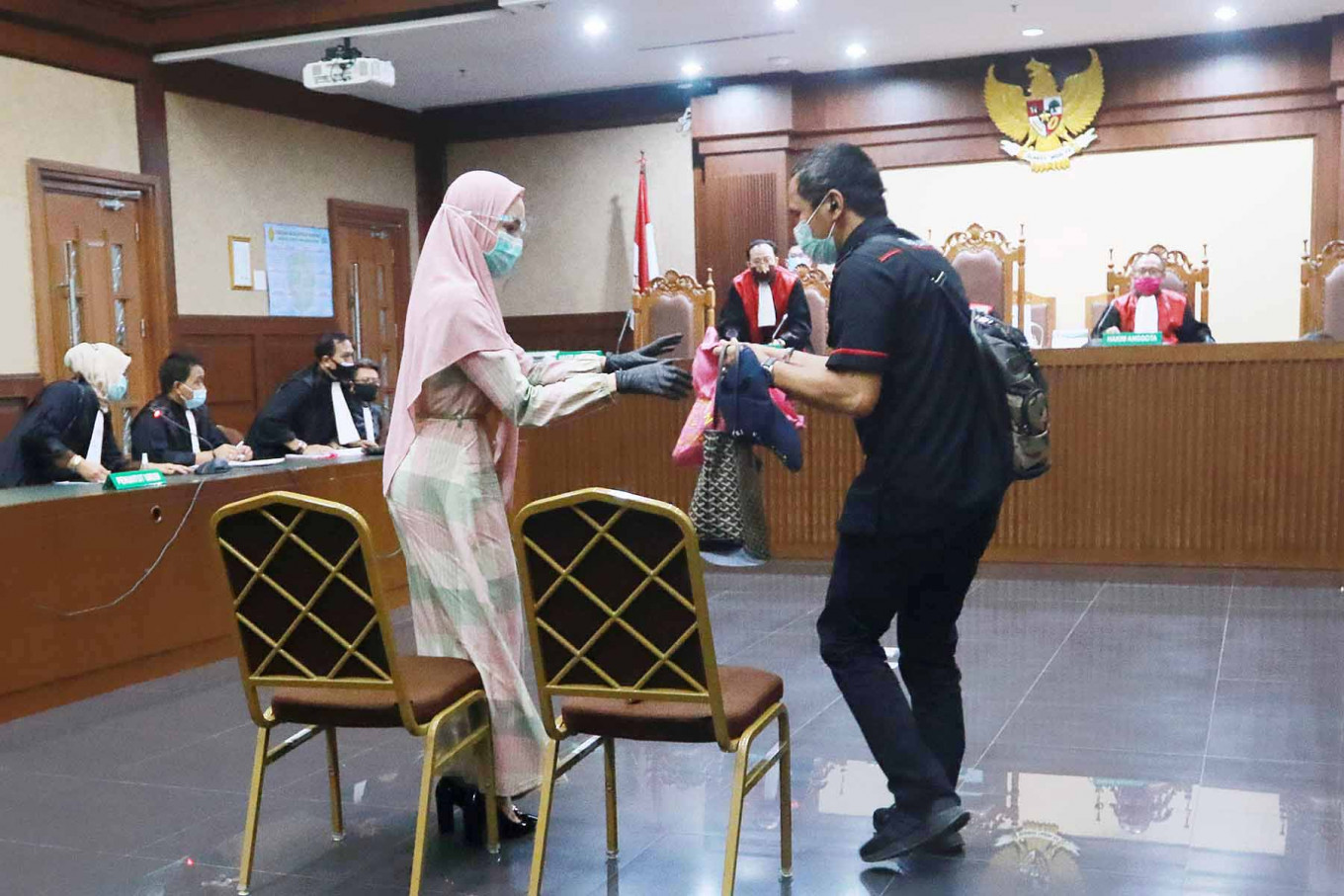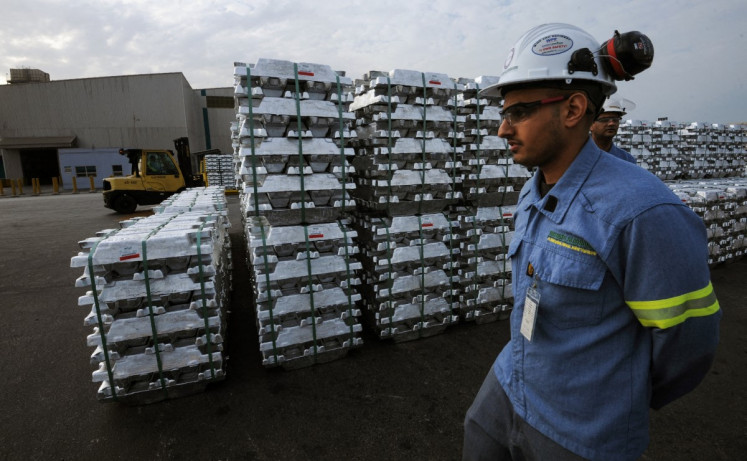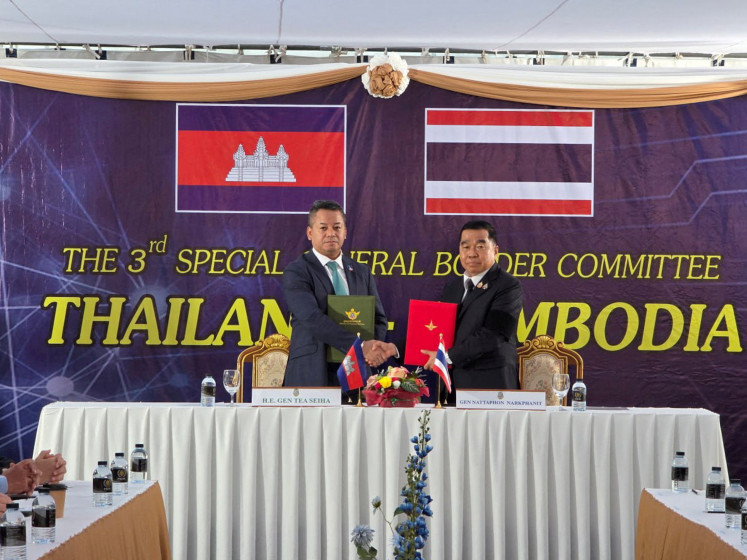Popular Reads
Top Results
Can't find what you're looking for?
View all search resultsPopular Reads
Top Results
Can't find what you're looking for?
View all search resultsMoney laundering is still rife
Financial watchdogs and law enforcement must close ranks and up their ante against money laundering, lest Indonesia be placed back on the OECD's "increased monitoring" list.
Change text size
Gift Premium Articles
to Anyone
 Pinangki Sirna Malasari (left, foreground), a former prosecutor charged with accepting bribes and laundering money in relation to the graft case against convict and former fugitive Djoko Tjandra, attends the first hearing of her trial on Sept. 23, 2020 at the Central Jakarta District Court. (JP/Dhoni Setiawan)
Pinangki Sirna Malasari (left, foreground), a former prosecutor charged with accepting bribes and laundering money in relation to the graft case against convict and former fugitive Djoko Tjandra, attends the first hearing of her trial on Sept. 23, 2020 at the Central Jakarta District Court. (JP/Dhoni Setiawan)
T
he Financial Transaction Reports and Analysis Centre (PPATK) said it had received 73,000 reports on suspicious financial transactions in 2021, up from 68,057 in 2020, as well as 2.4 million reports on suspicious cash transactions, down from 2.7 million in 2020.
Though the number of cash transaction declined last year, this trend is still worrisome because only single transactions and multiple cash payments in a single day that circumvent (smurfing) the Rp 500 million (US$34,720) reporting threshold are classified as suspicious cash transactions. Given the advances in electronic payments, this trend confirms that cash remains the vehicle of choice for criminals to launder money domestically, regionally and internationally.
Unfortunately, not even 1 percent of the reported suspicious transactions can be built into criminal cases on money laundering and further, very few of those cases eventually lead to a conviction.
The main reason behind the weak enforcement of the law on anti-money laundering (AML) is that the PPATK, a type of institution that in other countries is called financial intelligence agency, does not have the authority to build money laundering cases for prosecution. The PPATK is mandated only to analyze suspicious transactions and report the outcome of its analyses to law enforcement agencies: the National Police, the Attorney General’s Office and the Corruption Eradication Commission (KPK).
It is equally discouraging, though, that these agencies do not have the adequate resources and technical competence to develop dossiers on strong cases of money laundering. Yet more disappointing is that many judges do not have full understanding of what money laundering really is, with all the complex forms of transactions, even though the legal framework and drive on AML were launched in 2003 under the 2002 Money Laundering Law, which was later replaced by Law No. 8/2010.
The very few cases that have led to convictions were corruption cases. This indicates that most judges still think money laundering cases should be supported by evidence of predicate crimes that generate the money that is laundered, whereas under the 2010 AML law, a predicate crime does not need to be proven. The law mandates that it is not the prosecutors but the defendants of a money laundering case who are obliged to prove their innocence by proving that the money or assets involved in the financial transactions conform to their financial profiles.
It is most imperative that law enforcement agencies strengthen enforcement of the AML law. Otherwise, the Financial Action Task Force of the Organisation for Economic Co-operation and Development, the global anti-money laundering agency headquartered in Paris, could put Indonesia back on its list of Jurisdictions under Increased Monitoring. This classification would place Indonesia among those countries with a high risk of money laundering, which would increase the costs of international financial transactions with Indonesia.
On the preventive side, Bank Indonesia (BI) and the Financial Services Authority (OJK) should see to it that banks and nonbank financial service firms strictly implement the know your customer (KYC) guidelines. In addition, as per the AML law, BI should be rigorous in overseeing that the providers of certain goods and services, such as property companies, car retailers, notaries and auction houses, as well as traders of jewels, precious metals and fine arts, conduct vigorous audits and due diligence on customers that make big cash transactions.










